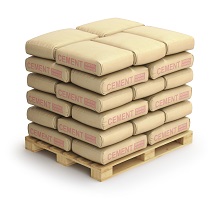 Standards and regulations rarely inspire harmonious thoughts, but they do protect honest businesspeople from unscrupulous ones.
Standards and regulations rarely inspire harmonious thoughts, but they do protect honest businesspeople from unscrupulous ones.
Selling only products that meet standards may cause a few headaches, but ultimately your efforts result in safer and better structures for your community. That’s why businesses accept regulations – and even ask for them. It’s telling that industries approach the International Organization for Standardization (ISO) to request standardization. Leading entrepreneurs want standards so competitors can know that they’re on a level playing field and that claims of quality are legitimate.
Standards don’t work perfectly, of course, because few things in life are guaranteed. For example, some of the most regulated industries in the world managed to slip past their regulators, leading directly to the Great Recession.
The same thing has happened in building supplies. When was the last time you had a customer ask you for drywall made outside of the US? Drywall wasn’t even tested for toxic chemicals until after a debacle that may have contaminated thousands of homes made headlines.
But those who evade standards and the objectives underlying them are exceptions.
Most often, standards encourage the pursuit of excellence. Many industries consider ISO, OSHA, EPA and other established standards the bare minimum. They create private regulatory bodies that enforce even higher standards, knowing full well that the market will pay for quality.
In the building industry one of the most important of these was first conceived in 1998. Since then certification by the Leadership in Energy and Environmental Design (LEED)® has steadily gathered strength – even though it lacks the imprimatur of a governing body and does little more than aspire to an ideal.
Today builders and architects clamber for LEED® certification, and it has become a global standard for environmentally responsible building methods. While it doesn’t certify building materials individually, LEED® awards points towards a project’s certification based upon the use of materials that contribute to the LEED® ideal. Major suppliers like Home Depot list their products that earn points towards LEED® certification – and they leave blank product types where they don’t have a LEED® option, as though to indicate to manufacturers where product development opportunities lie.
Of course, only the best and most competent builders register their projects to get certified. To date around the globe over three billion square feet of green construction has earned LEED® certification, and a growing number of governments now either require compliance or reward it. Demand for green building exploded even during the recession and shows no sign of slowing down.
Compliance requires advanced knowledge and the best builders want certifications to show that they have it. Needless to say, builders who offer their work for exceptionally detailed review expect to pass.
That’s the same attitude you want from your from customers when they tender payment. A confident customer won’t mind when you put their check through a verification process before accepting it – in fact, since verification and compliance are essential to their business they will probably respect you for using similar methods to protect yours. And when it comes to accepting checks, making sure you get paid is one of the few things in life you actually can guarantee.



